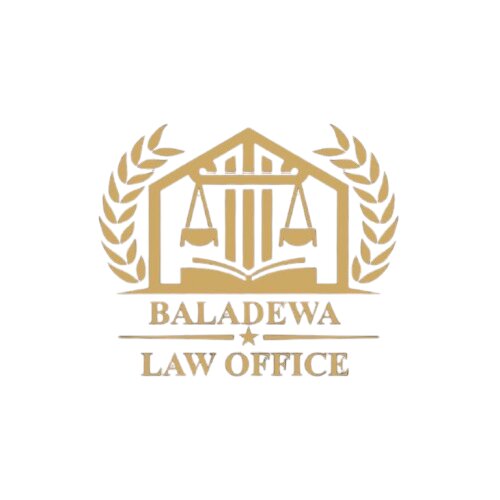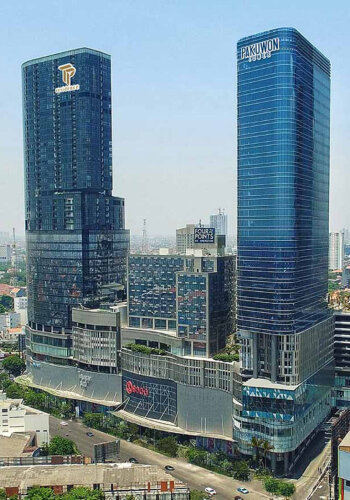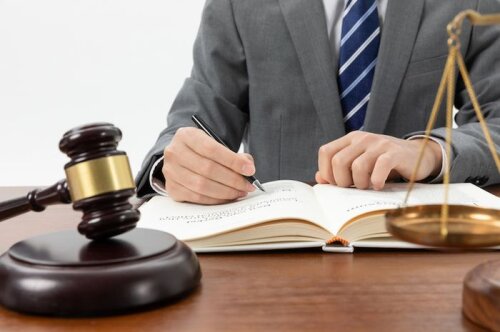Best Communications & Media Law Lawyers in Indonesia
Share your needs with us, get contacted by law firms.
Free. Takes 2 min.
Or refine your search by selecting a city:
List of the best lawyers in Indonesia
About Communications & Media Law in Indonesia
Communications & Media Law in Indonesia governs the regulation of telecommunications, broadcasting, and internet services. This area of law is essential in ensuring the effective operation, regulation, and distribution of media, news, and information. The framework aims to protect public interests, maintain media ethics, and ensure the free flow of information while balancing national security and cultural norms. The Ministry of Communication and Information Technology is the primary body responsible for overseeing laws and regulations within this sector.
Why You May Need a Lawyer
There are several situations where individuals or businesses might require legal assistance in the field of Communications & Media Law in Indonesia:
- Starting a media or telecommunications company and needing assistance with licensing and compliance with government regulations.
- Dealing with defamation claims or content disputes arising from broadcasts or published materials.
- Addressing issues of censorship or content restrictions imposed by authorities.
- Navigating the legal implications of digital marketing and advertising within Indonesian media regulations.
- Handling disputes related to intellectual property rights in media productions or digital platforms.
- Ensuring compliance with consumer protection laws for businesses operating online or through telecommunication means.
Local Laws Overview
The Communications & Media Law landscape in Indonesia is influenced by several key regulations:
- Broadcasting Law: Governs television and radio broadcasting, including licensing, content regulation, and ownership structures.
- Electronic Information and Transactions Law (UU ITE): Provides a legal framework for electronic transactions and addresses issues like defamation on digital platforms, privacy, and cybercrime.
- Telecommunications Law: Regulates telecommunications services and infrastructure, licensing, and consumer protection in the telecommunications sector.
- Press Law: Ensures freedom of the press while maintaining editorial standards and accountability within media organizations.
- Copyright Law: Protects intellectual property rights related to media content, including videos, audio, and digital content distribution.
Frequently Asked Questions
What constitutes defamation under Indonesian law?
In Indonesia, defamation involves making a false statement that harms someone's reputation. It can be addressed through criminal laws under the ITE Law or the Criminal Code, as well as through civil claims for damages.
Is internet censorship a concern in Indonesia?
Yes, the government does enforce internet censorship, primarily to block content deemed harmful, obscene, or a threat to national security. Legal mechanisms are in place for this purpose, and affected parties may have recourse through legal action to challenge unjust censorship.
What is the role of the Indonesian Broadcasting Commission (KPI)?
The KPI is responsible for regulating and supervising broadcasting content in Indonesia, ensuring compliance with local content standards and ethical guidelines.
How can I start a telecom business in Indonesia?
Starting a telecom business requires obtaining the necessary licenses from relevant authorities, including the Ministry of Communication and Information Technology. Legal consultation is recommended to navigate the complex regulatory environment.
How are digital transactions protected under Indonesian law?
The UU ITE Law provides a legal framework that ensures the validity of digital transactions, addresses consumer protection, and safeguards against cybercrimes.
What should I know about copyright laws for media content?
Indonesian copyright law protects creators of original works such as music, film, and literature from unauthorized use. Legal advice may be necessary to understand specific rights and how to register them properly.
Can foreign media companies operate in Indonesia?
Foreign media companies can operate in Indonesia but must comply with local ownership and licensing regulations. Consulting with a lawyer familiar with foreign investment laws is advisable.
What are the advertising regulations in Indonesia?
Advertising is regulated to prevent misinformation, obscene content, and unfair competition. Advertisers must adhere to ethical standards and may require legal counsel to ensure compliance with these regulations.
What legal issues might arise from user-generated content?
Platforms hosting user-generated content must navigate defamation laws, intellectual property rights, and content moderation policies to avoid potential legal liabilities.
How can media companies ensure compliance with consumer protection laws?
Media companies should implement transparent practices, safeguard user data, and ensure fair advertising claims. Legal consultation can help navigate specific consumer protection requirements.
Additional Resources
For further assistance in Communications & Media Law in Indonesia, consider reaching out to the following organizations:
- Ministry of Communication and Information Technology: The primary regulatory body for telecommunications and media sectors.
- Indonesian Broadcasting Commission (KPI): Supervises broadcast content standards and regulations.
- Indonesian Telecommunication Regulatory Agency (BRTI): Focuses on telecommunications regulation and consumer protection.
- Legal firms specializing in media law: Seek out law firms or legal consultants who specialize in communications and media law for personalized advice.
Next Steps
If you need legal assistance in Communications & Media Law in Indonesia, here are some steps to consider:
- Identify your specific legal issue and gather any relevant documents or information.
- Research and contact a lawyer or law firm with expertise in Communications & Media Law.
- Schedule a consultation to discuss your situation, potential legal strategies, and associated costs.
- Ensure clear communication with your legal counsel and provide all necessary information to aid in their advisement.
- Stay informed about ongoing legal developments related to your issue to make informed decisions.
Lawzana helps you find the best lawyers and law firms in Indonesia through a curated and pre-screened list of qualified legal professionals. Our platform offers rankings and detailed profiles of attorneys and law firms, allowing you to compare based on practice areas, including Communications & Media Law, experience, and client feedback.
Each profile includes a description of the firm's areas of practice, client reviews, team members and partners, year of establishment, spoken languages, office locations, contact information, social media presence, and any published articles or resources. Most firms on our platform speak English and are experienced in both local and international legal matters.
Get a quote from top-rated law firms in Indonesia — quickly, securely, and without unnecessary hassle.
Disclaimer:
The information provided on this page is for general informational purposes only and does not constitute legal advice. While we strive to ensure the accuracy and relevance of the content, legal information may change over time, and interpretations of the law can vary. You should always consult with a qualified legal professional for advice specific to your situation.
We disclaim all liability for actions taken or not taken based on the content of this page. If you believe any information is incorrect or outdated, please contact us, and we will review and update it where appropriate.
Browse communications & media law law firms by city in Indonesia
Refine your search by selecting a city.

















